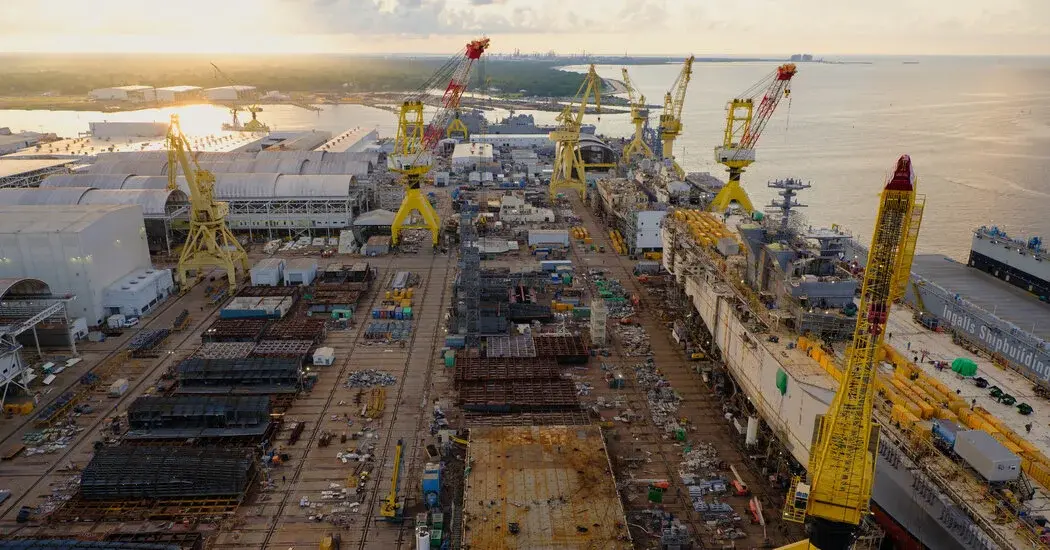NYT gift article expires in 30 days.
This is the military in a nutshell. It ostensibly needs to protect the nation, but civilian industries exist as a result, whose executives have generals in their pockets. If the industry no longer serves the needs of the military, then the military should stop using it; but that doesn’t reduce the plight of a worker who would become unemployed as a result. Who suffers from this tension? Every taxpayer who isn’t an executive or a general with a cushy retirement job, but especially workers and average servicemembers.
Certainly true.
Right now we have a military that serves the interests of the industrial complex and not the other way around.
In WWII it wasn’t that way. The government did not have companies that it would be seduced into paying more than a fair value for military equipment
🤖 I’m a bot that provides automatic summaries for articles:
Click here to see the summary
A symphony of sorts echoed through the sprawling shipyard on the Gulf Coast of Mississippi — banging, hissing, beeping, horns, bells and whistles — as more than 7,000 workers hustled to fill orders fueled by the largest shipbuilding budget in the Navy’s history.
Bobbing in a small bay off the Persian Gulf was a collection of tiny unmanned vessels, prototypes for the kind of cheaper, easier-to-build and more mobile force that some officers and analysts of naval warfare said was already helping to contain Iran and could be essential to fighting a war in the Pacific.
But the Navy, analysts and current and former officials say, remains lashed to political and economic forces that have produced jobs-driven procurement policies that yield powerful but cumbersome warships that may not be ideally suited for the mission it is facing.
In just the past eight years, Congress has added $24 billion in extra money to build ships, more than any other part of the Pentagon budget, even as lawmakers have cut spending on repairs to the fleet, according to an analysis by the Center for Strategic and Budgetary Assessments.
Thousands of workers in hard hats pour through the gates at the Huntington Ingalls shipyard in Pascagoula before the pre-dawn horn sounds at the start of a shift, offering a regular reminder of what an enormous operation the shipbuilding effort is here — the largest manufacturing employer in Mississippi.
The risks to U.S. Navy ships in any conflict in that region are so severe that the United States is left with two undesirable options, according to researchers at RAND Corporation, a think tank that has run a series of war game exercises for the Pentagon.
Saved 91% of original text.




